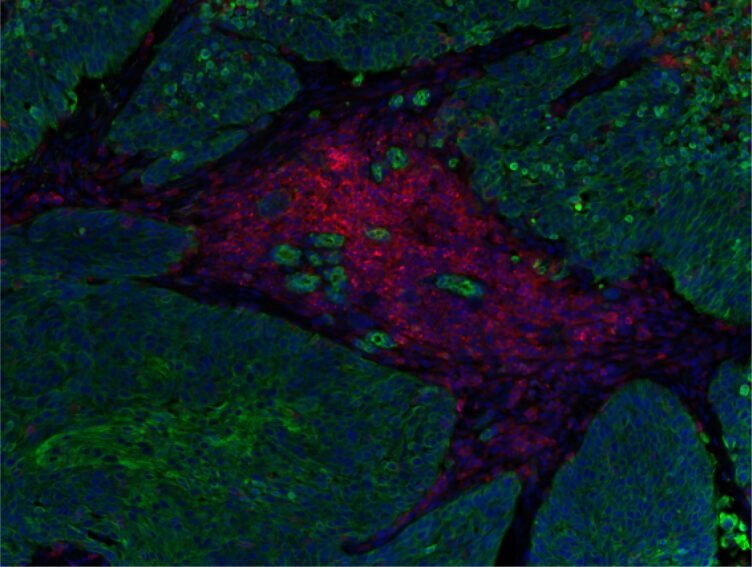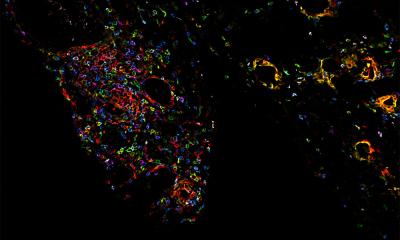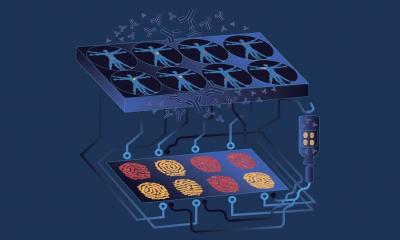
Image credit: CNIO
News • Strengthening the immune defense
STAb-T: new immunotherapy method shows promise against lung cancer
Strategies that use the body’s natural defence system to fight cancer, an approach known as immunotherapy, have already shown good results in several types of cancer, but not yet in all.
In this context, a collaborative project led by researchers from the National Cancer Research Centre (CNIO) and the Cancer Immunotherapy Unit (UNICA) from Hospital 12 de Octubre has proved in animal models the efficacy of a new immunotherapy to treat solid tumours, based on strengthening a certain type of cell within the patient’s immune system, T lymphocytes. The therapeutic potential of this new approach known as STAb-T cell immunotherapy has been validated in animal models with non-small cell lung cancer. The results are published in the journal OncoImmunology.
The technique is based on removing T lymphocytes or T cells from the patient’s tumour, genetically modifying them in the laboratory to enhance their anti-tumour capacity, increasing their number, and then putting them back into the patient to destroy the tumour. This type of adoptive cell immunotherapy using T cells has already demonstrated remarkable therapeutic efficacy in patients with melanoma. This has led to the approval (16 February 2024) by the U.S. drug agency, the FDA, of the first autologous T cell therapy for adult patients with inoperable or metastatic melanoma. In other cancers, however, adoptive cell immunotherapy with TIL has not previously shown any clinical benefit.
CNIO researchers have employed a new strategy to strengthen the patient’s T lymphocytes. They have modified the T lymphocytes using their own technique, STAb-T cells. T cells are modified so that they can produce a special type of bispecific antibody that can recognise two targets, one in the tumour cell and the other in the T cell. Bispecific antibodies therefore bring defensive cells into contact with tumours, which makes tumours easier to eliminate.
The efficacy of STAb-T immunotherapy is currently being evaluated in a First-in-human clinical trial for the treatment of patients with B-cell acute lymphoblastic leukaemia (B-ALL). In addition, STAb-T cells have also recently been shown in the laboratory and in animal models to be more effective than immunotherapy preferably used for the treatment of multiple myeloma.
The new paper was coordinated by Luis Álvarez-Vallina, head of the H12O-CNIO Clinical Research in Cancer Immunotherapy Unit and UNICA at Hospital 12 de Octubre. The lead author is Anaïs Jiménez-Reinoso. The H12O-CNIO Clinical Research Unit for Lung Cancer, the Advanced Therapies Unit at Hospital Niño Jesús, the Pathology Department of Hospital Universitario 12 de Octubre, and NISOLAB, among others, have all collaborated on this research. The work has been carried out with funding from the Spanish Cancer Association, the CRIS Cancer Foundation, the State Research Agency, the Carlos III Health Institute and Madrid’s Regional Government.
Source: National Cancer Research Centre
17.09.2024











